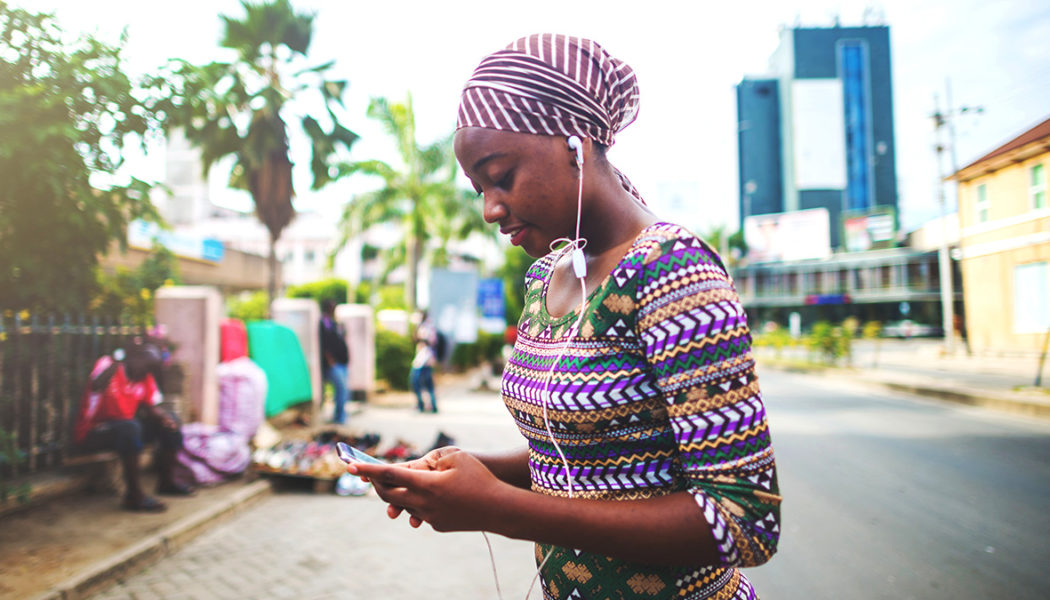
Sub-Saharan Africa is urbanizing with massive rural-urban migration. But unlike the urbanization of the Western world, Sub-Saharan Africa is missing a critical component: industrialized urban cities. Because of this, these urban areas have become overcrowded with substandard housing and severely inadequate infrastructure to cope with unplanned population growth.
Fortunately, a new development playbook to solve this problem is already evolving, and it is anchored on the young people equipped with advanced digital skills in Sub-Saharan Africa. These young workers are digitally savvy, creative, and can lead a massive transformation — if they’re equipped and supported to unlock their potential. They can export digital skills to Western Europe, United States, and Asia through the unbounded and unconstrained opportunities the internet has provided through “digital jobs” from music to software development to prompt engineering. But to scale this and make it a success, changes must be taken into consideration at both the policy level and in implementation in the areas of quality digital education, tax treaties and harmonization, and outsourcing-focused startups.
Sub-Saharan Africa is urbanizing with massive rural-urban migration. But unlike the urbanization of the Western world decades and centuries ago, Sub-Saharan Africa is missing a critical component: industrialized urban cities. In other words, unlike in the Western world where industrialization preceded urbanization, Sub-Saharan Africa’s urban cities are growing with marginal manufacturing output and industrial capacities.
The implication is huge, as these urban areas have become overcrowded with substandard housing and severely inadequate infrastructure to cope with unplanned population growth. With limited taxes, urbanizing Sub-Saharan African cities are underfunded and could face severe challenges on healthcare delivery and overall social welfare. And with climate change affecting major cities like Lagos and Nairobi, the continent needs urgent solutions.
According to Statista, on average, the Sub-Saharan African urbanization rate stood at approximately 41.83% in 2021, even when the continent accounts for just 2% of the global manufacturing output. The implication is that those moving to the urban areas in search of economic opportunity aren’t finding it, and that has resulted in high unemployment rates, especially among young people. The Brookings Institution estimates the youth unemployment rate in Africa to be about 60%, while the United Nations Conference on Trade and Development (UNCTAD) puts the poverty rate at above 50% in most of the countries.
The challenges posed by this rapid “urbanization before industrialization” have been exacerbated by many factors, including an industrialization policy which has looked more backward than forward. For years, Sub-Saharan African leaders have been architecting a strategy to mimic what worked for China, which relies on an expectation that the Western world would outsource low-level factory jobs to Sub-Saharan Africa to stimulate a dynamic manufacturing sector once wages become relatively more expensive in China.
But, as I’ve noted before, it would be a huge mistake if Africa tries to pursue China’s strategy. What worked for China is already expiring with advances in AI and robotics, making it nearly impossible for Western Europe and the United States to ship some of these low-level jobs outside their shores; robots will do the jobs at home. Instead, Sub-Saharan African policymakers must develop a new developmental playbook that takes into account the realities of the present state of the area.
Fortunately, that new development playbook is already evolving, and it is anchored on the teeming young people in Sub-Saharan Africa. Over the last few years, in the process of running Tekedia Capital, an early-stage venture fund, and Tekedia Institute, a business school with thousands of students, I have collected enormous data on sectors, core economic indicators, freelancing, offshore jobs, and other factors. Based on the datasets, the path I see for the development of the continent goes through young people equipped with advanced digital skills. The young people in sub-Saharan Africa are digitally savvy, creative, and can lead a massive transformation if they’re equipped and supported to unlock their potential, not just regionally but globally. These young people can export digital skills to Western Europe, United States, and Asia through the unbounded and unconstrained opportunities the internet has provided. In other words, while the West outsourced factory jobs to China, soon, they will outsource “digital jobs” in multifaceted ways to Sub-Saharan Africa. These digital jobs are diverse, from music to software development to prompt engineering. For nations like Japan and South Korea where birth rates have remained low, Sub-Saharan Africa provides a readily available talent base, to remotely support their economies.
Some enabling infrastructures are in existence as the Sub-Saharan African region is experiencing deeper broadband penetration. Alongside a growing terrestrial broadband expansion, the arrival of SpaceX Starlink satellite broadband brings many promises on connectivity in both urban and rural areas. And with renewal energy startups, which use solar to provide energy services, young techies are overcoming infrastructure challenges, making it easier for them to participate in the global digital economy.
These shifts allow young Sub-Saharan workers to earn income where they are, and once that income is imported, they have the capacities to contribute and transform their local economies at scale. Indeed, some digital experts, after they have made money working for international organizations, decide to start their own companies and, in the process, nurture other young talent. The continent has at least seven unicorns — startups valued at least $1 billion — and as they become listed in the public stock exchanges, acquired by large multinational firms, or grow to have abilities to pay good dividends, the wealth created would be used to accelerate development. More so, because of the digital nature of their jobs, there is no requirement to remain in even the urban areas; Andela, a digital skill outsourcing startup, for example, hires workers from anywhere in Sub-Saharan Africa, provided they have good internet service.
But to scale this and make it a success, the following must be taken into consideration at both the policy level and in implementation:
Quality digital education: The Covid-19 pandemic demonstrated that many Sub-Saharan African countries are still very low on digital readiness. While many universities in China, the U.S., and Europe were able to transition to remote learning, many Sub-Saharan African universities could not. Building infrastructures to support the future knowledge economy will be essential for Sub-Saharan Africa to unlock the huge potential of the youth.
Tax treaties and harmonization: In leading Sub-Saharan African economies like Nigeria, Ghana, and Kenya, most young people work for some of the leading companies in Europe, U.S., and Canada. Sub-Saharan African policy makers must ensure these workers are compensated fairly, and that they pay local taxes as required by law. A clear policy that makes it easier for global companies to hire and develop these talents should be part of the region’s development priorities. Also important is making sure that burdensome taxation does not dim the young workers’ motivations. That calls for effective implementation and harmonization of tax treaties.
Outsourcing-focused startups: Regional and national policies should be developed to deepen the capacities of outsourcing-focused digital companies. These companies, like Andela, valued at excess of $1.5 billion, train young people and then export their digital skills to the world, while they remain in the continent. African embassies and missions in Europe, Asia, and North America could support them to connect with major clients, providing pipelines to hire the services of African youth.
Sub-Saharan Africa has young people to fuel the knowledge economy. According to the United Nations, “Africa has the youngest population in the world, with 70% of sub-Saharan Africa under the age of 30.” If the continent educates and trains them in the higher-level digital skills, Sub-Saharan Africa will develop within decades, and will experience its unique version of industrialization.









